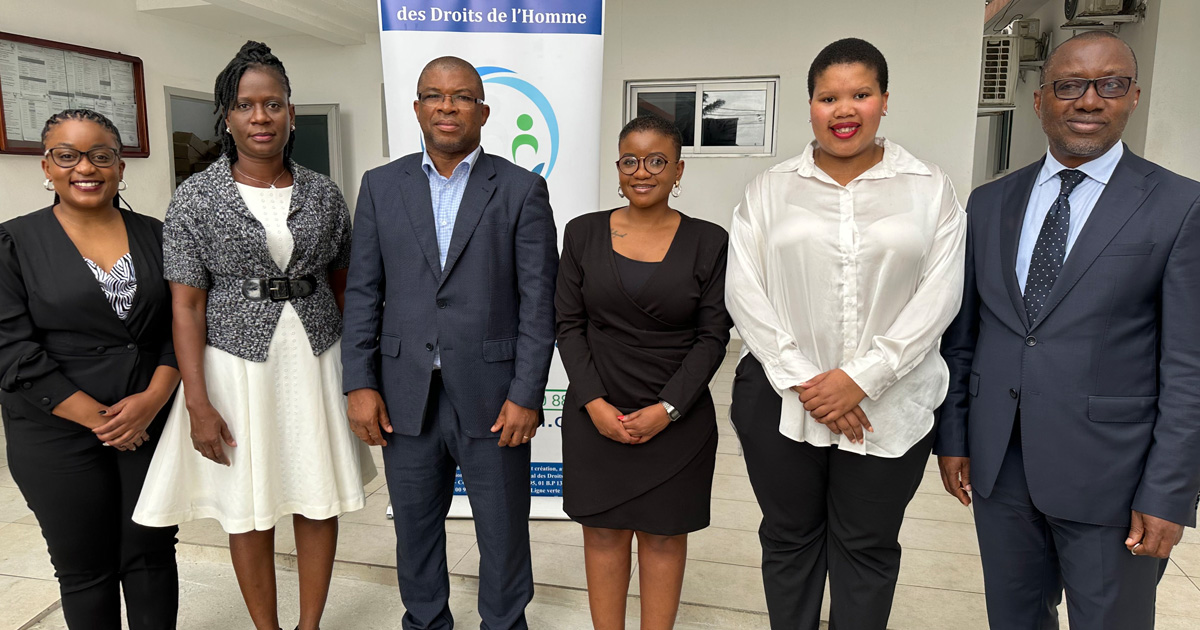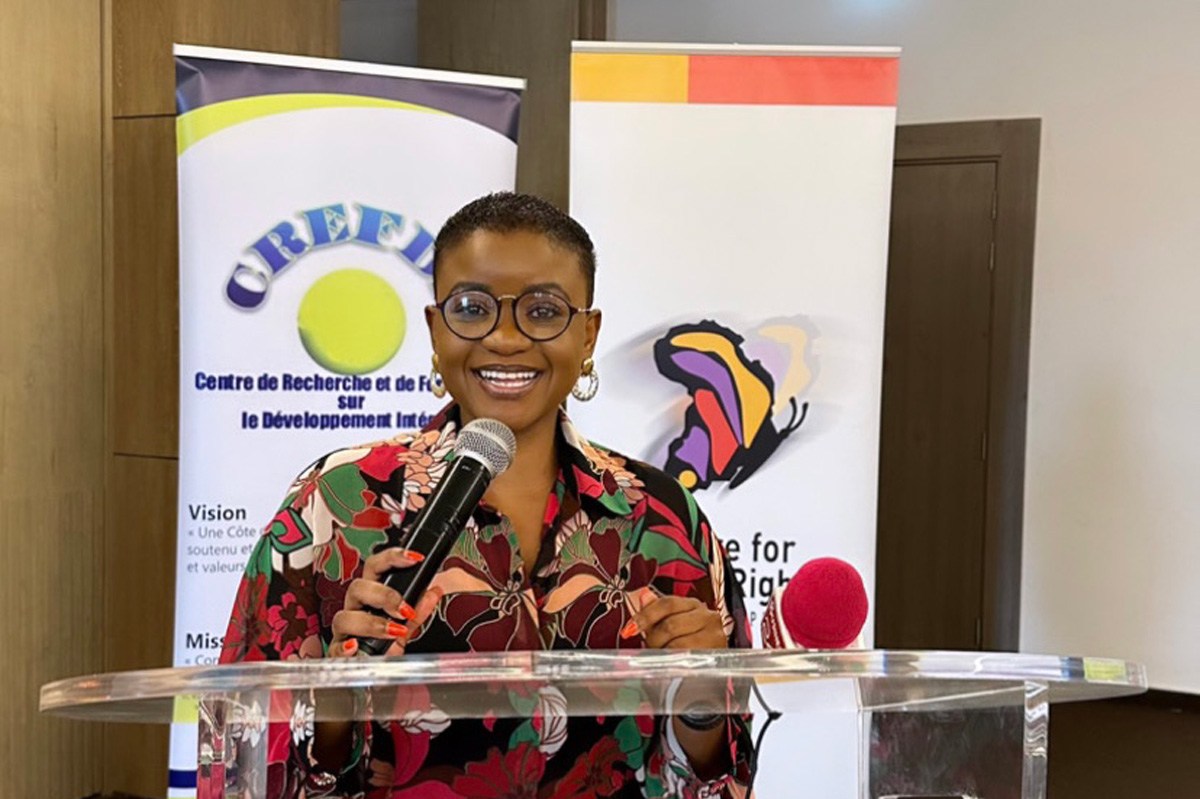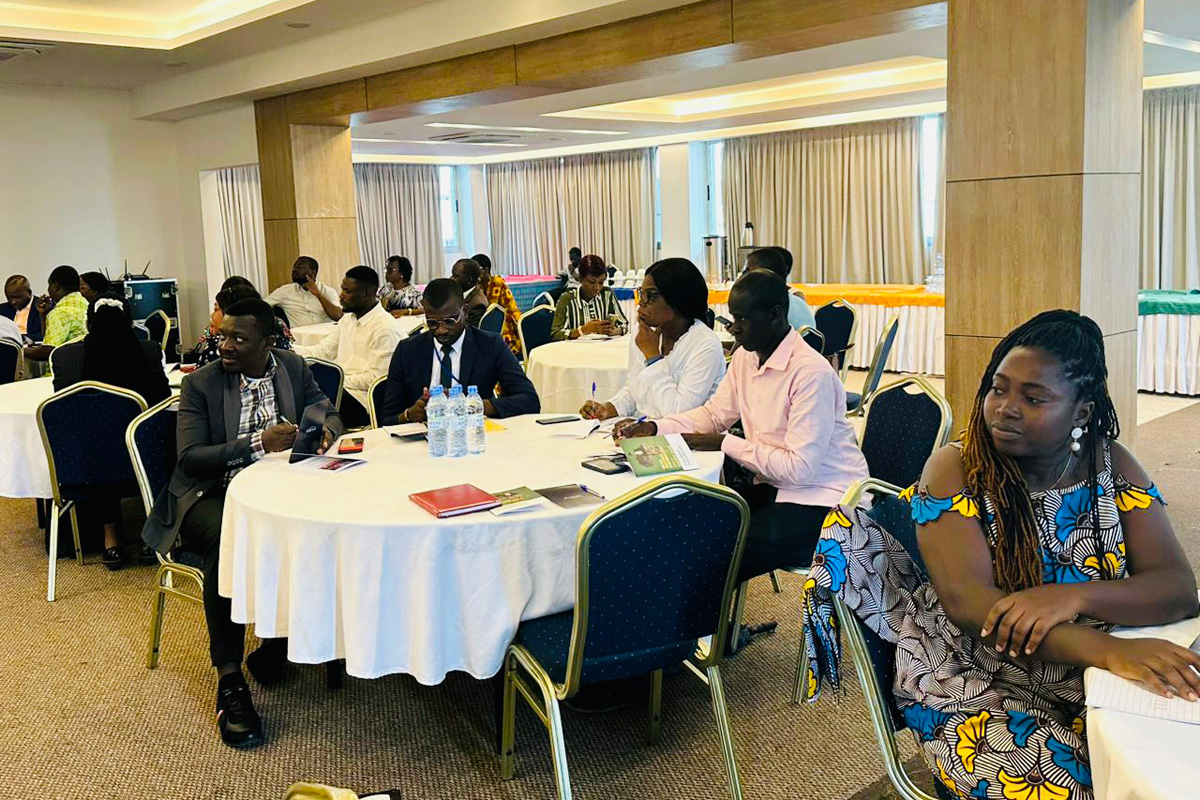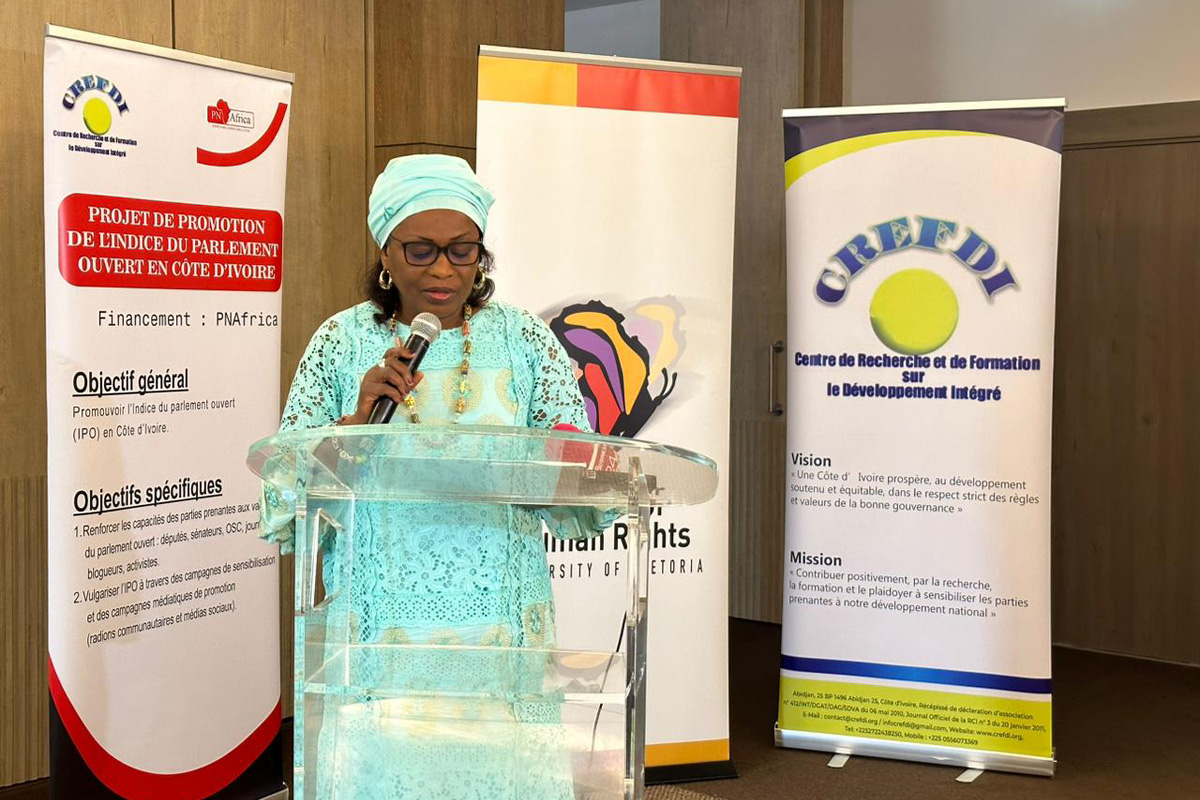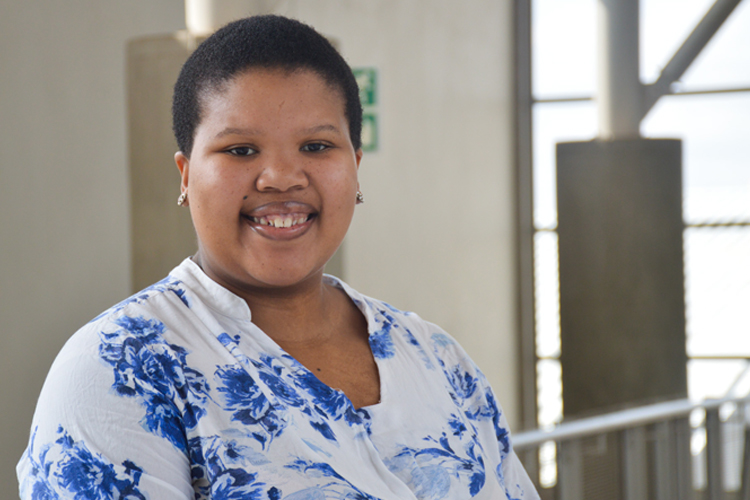On 20-21 July 2023, the Centre for Human Rights and the Pan-African Parliament Civil Society Forum (PAP CSO Forum), in partnership with the Parliamentary Network Africa (PNAfrica) convened a meeting in Cote d’Ivoire with some of the West African key actors to establish a formal mechanism of engagement between the PAP and civil society.
There are nearly over 3000 active Civil Society Organisations (CSOs) in West Africa that work on various issues including human rights, education, promoting dialogue, security sector reform, conflict-sensitive development, election monitoring, gender equality and post-conflict reconstruction. The Pan-African Parliament (PAP) continues to improve visibility on its mandate by directly working with CSOs to establish strong democratic consolidation on the continent. With nearly over 3000 active CSOs in West Africa, this is an opportune time for CSOs and the PAP to work together.
Since its inception, the PAP has sought to broaden and deepen its relations with international, regional and domestic actors. One of the ways in which this being achieved is through the Centre’s extensive work with the PAP through the establishment of the CSO Forum. The objective of this Forum was twofold: firstly, creating visibility of the PAP mandates that are underpinned by African Union Charter values (decision making, good governance, oversight, accountability and transparency). Secondly, exploring entry points within the PAP to bridge the democratic gap between domestic and regional parliaments.
“A reality for many West African countries has been CSOs atrophied under the pressure of militarism and conflict. For Sangare, if West Africa as a region is to rise to the next level of economic and political development, CSOs need to be of priority to the governments.” - Namizata Sangare, Chairperson of the Cote D’Ivoire Human Rights Commission
The PAP CSO Forum delegation met with Assouman Bamba, Cabinet Director; and Hokou Legrè Renè, Chief of Cabinet of the Cote D’Ivoire’s Counseil National des Droits de l’Homme (National Council for Human Rights) to discuss ways in which CSOs in Cote D’Ivore could be integrated within the PAP CSO Forum. This meeting was followed by a workshop on civil society advocacy in the PAP. Bonolo Makgale, Democracy and Civic Engagement (DCE) Unit Programme Manager and Convener of the PAP CSO Forum highlighted in her opening remarks that civil society is a core factor in sustaining democracy. Makgale indicated that it is nearly impossible to imagine democracy without civil society. Meaningful public participation is regarded as one of the most important democratic ideals which fosters citizen engagement in and understanding of decision-making processes that affect them. Therefore the African Union and the Pan-African Parliament project towards a reformed and integrated Africa is only plausible if it embraced civil society as the building block between African citizens and government.
In her keynote address, Chairperson of the Cote D’Ivoire Human Rights Commission and the President of the Francophone Association of the Human Rights National Association, Namizata Sangare warmly welcomed the new partnership between the Human Rights Commission and the PAP CSO Forum. Sangare expressed her hope for the partnership to be one that is fruitful, and strengthens the role of civil society in its promotion and protection of human rights in Africa. A reality for many West African countries has been CSOs atrophied under the pressure of militarism and conflict. For Sangare, if West Africa as a region is to rise to the next level of economic and political development, CSOs need to be of priority to the governments.
DCE Project Officers, Tariro Sekeramayi and Yanga Malotana facilitated a training on CSOs advocacy in the PAP. They provided contextual analysis on the PAP’s position within the African Union; the mandates and structures of the PAP and the avenues for civil society within the PAP. Some key points of discussion that emerged from the training was the legitimacy of the PAP if it is limited to advisory and consultative powers, among others. At present, the PAP has no ‘law-making powers’. However, its ultimate aim is to evolve into an institution with a fully-fledged legislative mandate whose members run for office and are elected by universal adult suffrage. When this is achieved, the PAP will be transformed into the AU’s most democratic organ, empowered with the legislative authority to enact Model Laws applicable to the entire continent. For democratic accountability to be enhanced, delegates conceded that member states must ratify the PAP Malabo protocol. The protocol was adopted at the AU Assembly of Heads of State and Government in 2014 in an attempt to transform the PAP into an institution with legislative powers. Article 8 of the Protocol specifically provides that the PAP shall be the legislative organ of the African Union. This protocol has not entered into force because it has not yet attained the required number of ratifications.
CSOs play a vital role in promoting democratic values and human rights, as well as fostering civic participation. It was evident in the discussion that a strong civil society is a fundamental building block for a vibrant and well-functioning democracy. Most importantly, civil society is not just a partner for governments, but a watchdog as well. It is within this context that it becomes crucial for an organ such as the PAP to continue to engage with CSOs to ensure that its mandates are fulfilled. Additionally, the PAP is a stepping stone for CSO visibility and agency in the decision making process. At a time, where the civic space is shrinking, democratic values are being threatened and human rights neglected – the PAP and CSO relationship is pertinent for democratic consolidation. Therefore the African Union and the Pan-African Parliament project towards a reformed and integrated Africa is only plausible if it embraced civil society as the building block between African citizens and government.
For more information, please contact:
Tel: +27 (0) 12 420 4199
u18020322@tuks.co.za
Tel: +27 (0) 12 420 4199
tariro.sekeramayi@up.ac.za

